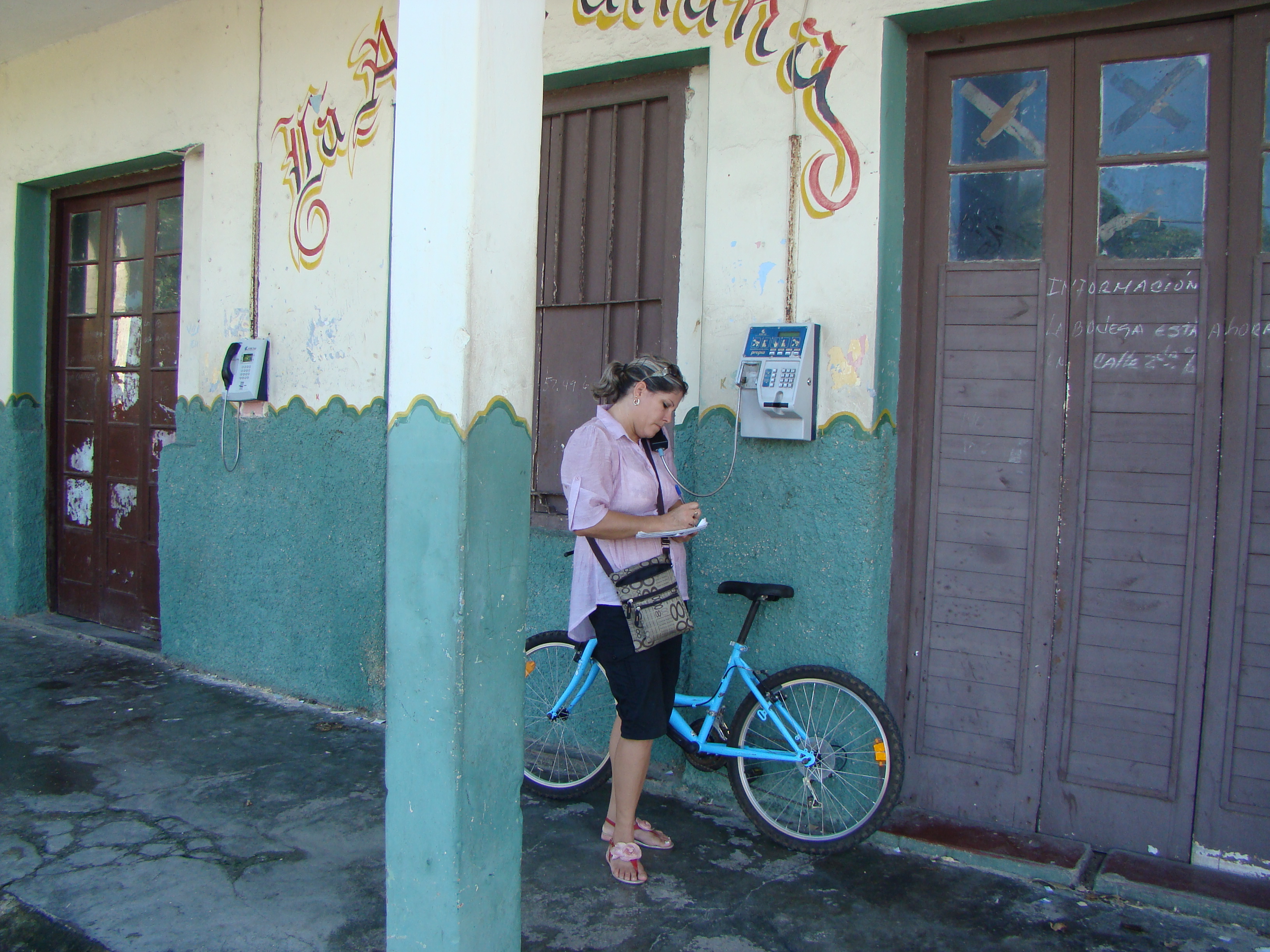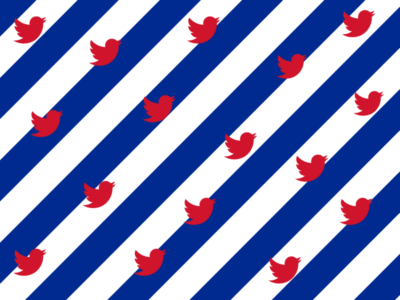
Woman at a pay phone in Varadero, Cuba in 2012. Image from Wikimedia Commons.
“The Internet is a battlefield.” This is how the Internet is portrayed in Cuba. While the US State Department waxes about the free flow of information and knowledge, Cuban authorities speak of an ideological cyberwar, being waged by the United States, against Cuba and all it stands for. Last week's revelations regarding “ZunZuneo”, the USAID-created “Cuban Twitter”, suggests the Cubans may have a point.
Was the low-tech, feature phone-based ZunZuneo intended for subscribers to share information, opinions, and memes as they pleased? No. It was deliberately intended to promote “democratic change” and to spark the imaginary beginnings of a would-be Cuban Spring. Welcome to the latest chapter in the Cuba-US Cold War, now in well into its sixth decade.
Similar to other “liberation” technology-based US initiatives abroad, this project stemmed from a shortsighted and condescending idea about what happens when repressed populations get their hands on communications technologies. We know that social uprisings from Tunisia to Ukraine evolved not merely from spontaneous tweet-fests, but from strong networks of activists who had been working together for years to promote change in myriad ways, online and off. Yes, social media played a role—but it was a catalyst for action, not an organic creator of civic goals.
USAID does not seem to have thought this through. But this is only one part of what was seriously wrong with this program.
ZunZuneo was conceived, deployed and promoted by US government agents and subcontractors, all without the knowledge of the people that it was intended to help. Not only did the platform offer no transparency about its origins, it also obtained mobile phone numbers for half a million Cubans without their knowledge or consent. This would have constituted a sizable chunk of the mobile phone user population, which at the time was estimated at roughly 2.2 million people (out of a total population of 11 million.)
Even worse, ZunZuneo’s operators not only obtained these mobile phone numbers without the consent or knowledge of their owners—they also surveiled the content of subscriber messages. As AP writes, “Behind the scenes, ZunZuneo's computers were…storing and analyzing subscribers’ messages and other demographic information, including gender, age, “receptiveness” and “political tendencies.” USAID has since followed up with a blog post refuting several claims in the AP article, but conspicuously makes no mention of these allegations.
AP does not indicate whether these messages were private or public, and what guarantees of privacy users had, if any. But to some degree, this doesn’t matter. Under universal human rights doctrine, the ZunZuneo program almost certainly violated the privacy rights of subscribers.
This is precisely the same kind of behavior the US regularly condemns on the part of foreign governments. Using social networks as a surveillance tool? We’ve seen that before! Witness Pakistan, Vietnam, Saudi Arabia and nearly every other country that made it onto Reporters Without Borders’ Internet Enemies list this year.
The only difference is that USAID claims to have done this in the interest of “promot[ing] human rights and universal freedoms.”
Although it remains unclear what the Cuban government knew about the program, there’s a strong chance the authorities willingly allowed the program to take shape. Cuba’s state security apparatus is robust, well-oiled, and keenly aware of anything and everything that happens via telecommunications networks in the country. Although it would be impossible to prove, it’s likely security agents used the network as one (among many) ways to surveil citizens’ communications.
If we assume this to be true, it would mean that ZunZuneo not only created an easy portal for US government agents to eavesdrop on Cubans’ communications—it also generated an extra opportunity for the Cuban government to do the same.
The standard narrative in the US is that the economic embargo on Cuba exists because Cuba has a miserable human rights record. There’s plenty to be said for this. But the embargo was put in place well before Cuba became known for systematic violations of civil and political rights. In 1960, Fidel Castro issued a formal refusal of aid from the US government and ended all contracts with US companies that had comfortably operated—and reaped huge profits—in the country during the Batista era. Two years later, John F. Kennedy signed and sealed the embargo.
Among US political leaders, the people who still defend the embargo are those who stand to gain, politically and financially, from keeping it in place. Revelations like these suggest that the human rights of Cuban citizens are little more than attractive wrapping paper for a much less noble agenda. And the work of USAID in Cuba is no more than an extension of this agenda, one that is kept largely hidden from US and Cuban citizens alike. It is thanks only to efforts like those of Associated Press that we are occasionally able to witness the twisted absurdity of this bitter, everlasting quarrel.




3 comments